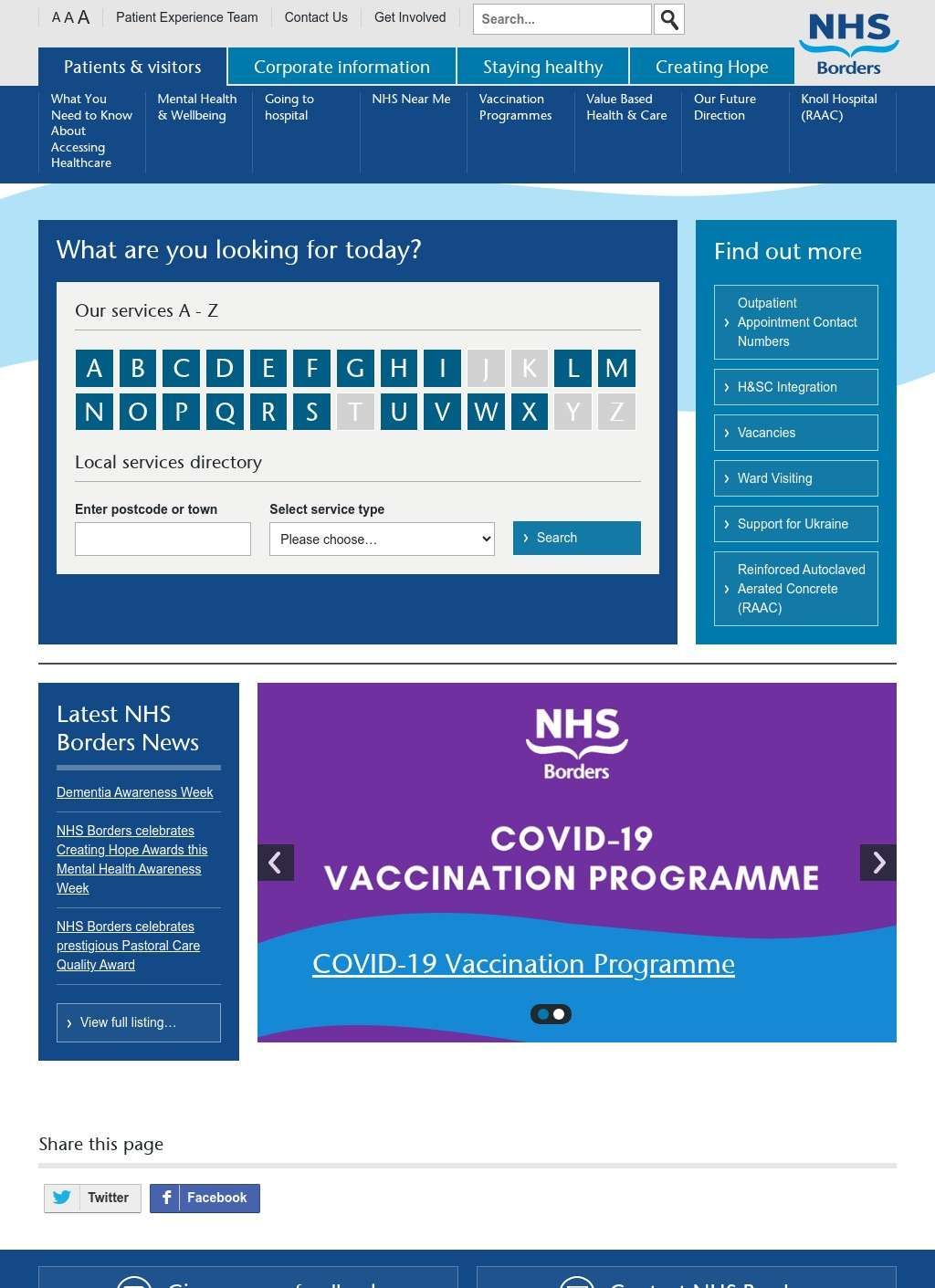NHS Borders serves as the primary healthcare provider for Berwickshire and the wider Scottish Borders region, delivering medical services to approximately 116,000 residents across a predominantly rural territory. Operating under the umbrella of NHS Scotland, this health board manages a complex network of facilities ranging from the main Borders General Hospital in Melrose to community hospitals and GP practices scattered throughout market towns and villages. The organisation's structure reflects the unique challenges of providing comprehensive healthcare across a large geographical area where population density remains low and distances between communities can be significant.
The Borders General Hospital in Melrose functions as the region's acute care centre, offering accident and emergency services, surgical procedures, maternity care, and specialist treatments. For Berwickshire residents, this facility typically requires a journey of 20-30 miles, highlighting the importance of local community hospitals in providing more accessible care. The hospital operates 328 beds and handles approximately 40,000 emergency department attendances annually. Recent investments have modernised facilities including the creation of a dedicated children's unit and upgraded diagnostic imaging equipment.
Community hospitals play a vital role in bringing healthcare closer to Berwickshire residents. The Knoll Hospital in Duns, though temporarily relocated due to structural issues with RAAC concrete, traditionally provides 23 beds for medical care, rehabilitation, palliative care, and support for elderly patients. Similar facilities in Kelso, Hawick, and Peebles offer comparable services, creating a network of local care that reduces the need for travel to the Borders General Hospital. These community hospitals work closely with GP practices to provide step-up care for patients who need more support than can be provided at home but don't require acute hospital admission.
Primary care services form the backbone of healthcare delivery in Berwickshire, with GP practices serving as the first point of contact for most health concerns. In Duns, two practices operate from the Knoll Health Centre: Duns Medical Group and Merse Medical Practice, together serving the town and surrounding rural areas. These practices offer routine appointments, chronic disease management, minor surgery, and preventive health services. The challenge of recruiting and retaining GPs in rural areas has led to innovative solutions including the use of advanced nurse practitioners and physician associates to maintain service levels.
Mental health services provided by NHS Borders recognise the particular challenges faced by rural communities, where isolation and limited transport can exacerbate psychological difficulties. Community mental health teams operate across the region, offering assessment, treatment, and support for conditions ranging from anxiety and depression to severe and enduring mental illness. The health board has invested in digital solutions including video consultations and online therapy platforms to improve access for those in remote areas. Crisis support operates 24/7 through dedicated helplines and emergency response teams.
Digital transformation has become increasingly important for NHS Borders in addressing the challenges of rural healthcare delivery. The NHS Near Me video consultation service, accelerated during the COVID-19 pandemic, now offers routine appointments across multiple specialties, saving patients lengthy journeys for follow-up consultations. The health board's website provides comprehensive information about services, health conditions, and self-care resources. Online prescription ordering and appointment booking systems have been implemented across most GP practices, improving convenience for patients while reducing administrative burden on staff.
Preventive healthcare and health promotion activities feature prominently in NHS Borders' strategy for improving population health outcomes. Screening programmes for bowel, breast, and cervical cancer operate throughout the region, with mobile units visiting rural communities to improve uptake. Vaccination programmes, from childhood immunisations to seasonal flu campaigns, are delivered through GP practices and community clinics. The health board works closely with local authorities and third-sector organisations to address wider determinants of health including poverty, housing quality, and social isolation.
Workforce challenges represent an ongoing concern for NHS Borders, particularly in recruiting specialists and maintaining services in rural areas. The health board has developed partnerships with universities to train healthcare professionals, offering placements that showcase the rewards of rural practice. Initiatives to support staff wellbeing and professional development help retention rates. The use of locum staff and visiting specialists ensures service continuity, though this approach carries financial implications that must be carefully managed within budget constraints.
Integration with social care services through the Scottish Borders Health and Social Care Partnership has created more seamless support for vulnerable residents. This partnership approach ensures that hospital discharge planning considers home care needs, equipment requirements, and family support. Care at home services, rehabilitation programmes, and day centres work together to maintain independence for elderly and disabled residents. The partnership also oversees care home provision and standards across the region.
Patient feedback and public engagement shape service development within NHS Borders. Regular surveys gather views on care quality and access issues. Public participation forums and the Scottish Borders Public Participation Network provide channels for community input into service planning. The health board publishes annual reports detailing performance against national standards, financial position, and strategic priorities. This transparency helps maintain public confidence while identifying areas for improvement.
Access to NHS Borders services is facilitated through multiple contact points designed to meet different needs. The main telephone number (01896 826000) connects to the Borders General Hospital switchboard, while NHS 24 on 111 provides out-of-hours health advice. Individual GP practices maintain their own contact numbers and appointment systems. For non-emergency situations, the NHS Inform website and helpline offer comprehensive health information. Emergency services are accessed through 999, with ambulance response times monitored closely given the rural distances involved in reaching patients.
